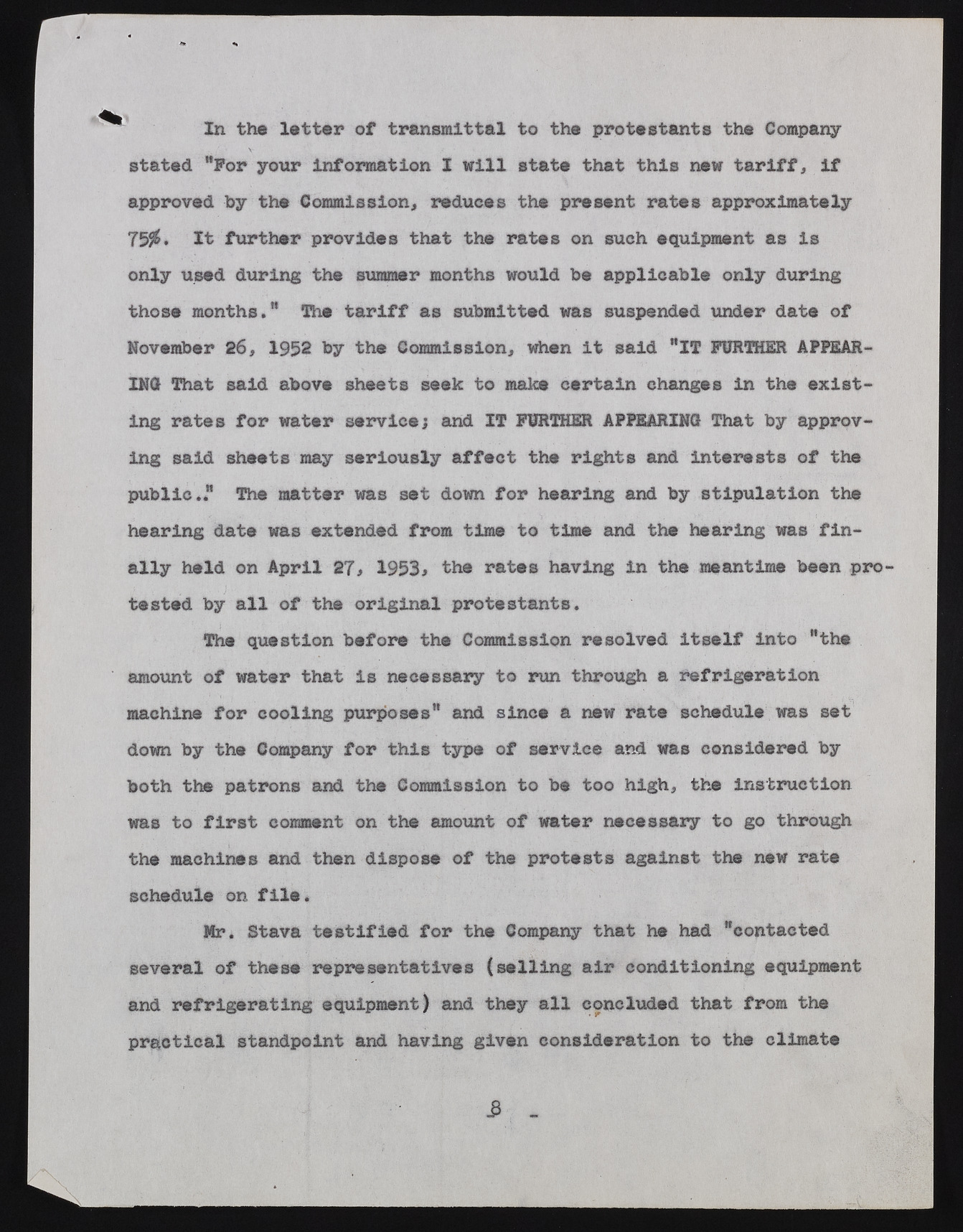Copyright & Fair-use Agreement
UNLV Special Collections provides copies of materials to facilitate private study, scholarship, or research. Material not in the public domain may be used according to fair use of copyrighted materials as defined by copyright law. Please cite us.
Please note that UNLV may not own the copyright to these materials and cannot provide permission to publish or distribute materials when UNLV is not the copyright holder. The user is solely responsible for determining the copyright status of materials and obtaining permission to use material from the copyright holder and for determining whether any permissions relating to any other rights are necessary for the intended use, and for obtaining all required permissions beyond that allowed by fair use.
Read more about our reproduction and use policy.
I agree.Information
Digital ID
Permalink
Details
More Info
Rights
Digital Provenance
Publisher
Transcription
In the letter of transmittal to the protestants the Company stated "For your information I will state that this new tariff, if approved by the Commission, reduces the present rates approximately 75#* further provides that the rates on such equipment as is only used during the summer months would be applicable only during those months.1* The tariff as submitted was suspended under date of November 26, 1952 by the Commission, when it said "IT FURTHER APPEARING That said above sheets seek to make certain changes in the existing rates for water service; and IT FURTHER APPEARING That by approving said sheets may seriously affect the rights and interests of the public." The matter was set down for hearing and by stipulation the hearing date was extended from time to time and the hearing was finally held on April 27, 1953, the rates having in the meantime been pro tested by all of the original protestants. The question before the Commission resolved itself into "the amount of water that is necessary to run through a refrigeration machine for cooling purposes" and since a new rate schedule was set down by the Company for this type of service and was considered by both the patrons and the Commission to be too high, the Instruction was to first comment on the amount of water necessary to go through the machines and then dispose of the protests against the new rate schedule on file. Mr. Stava testified for the Company that he had "contacted several of these representatives (selling air conditioning equipment and refrigerating equipment) and they all concluded that from the practical standpoint and having given consideration to the climate At *» 3 . X

